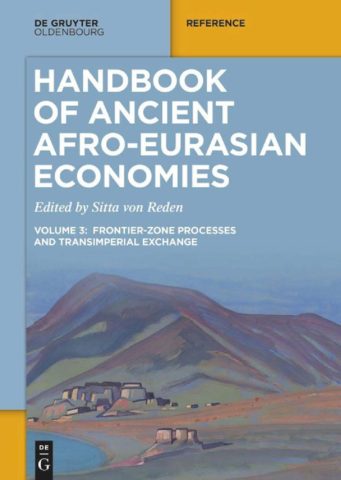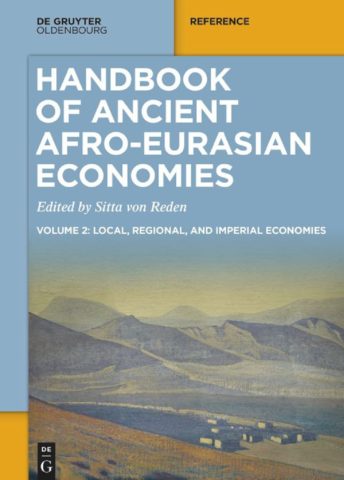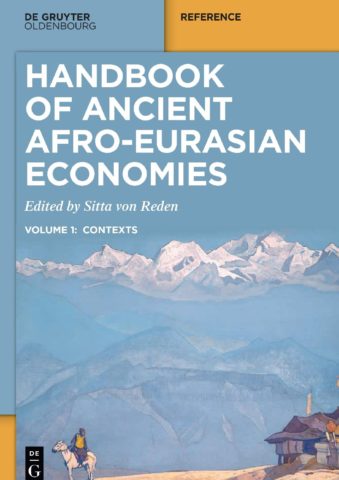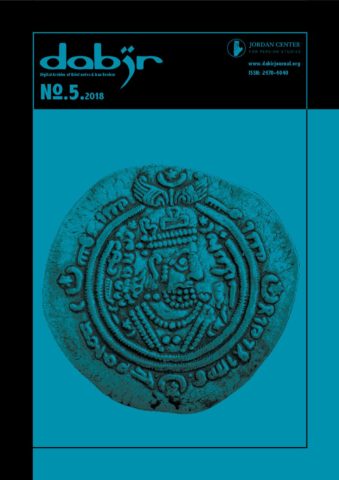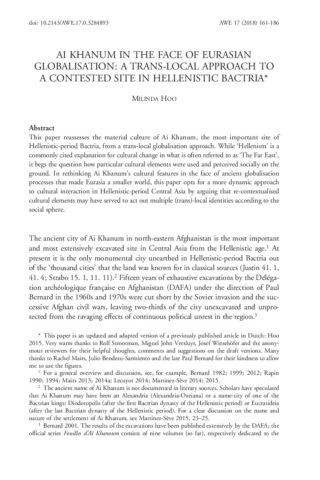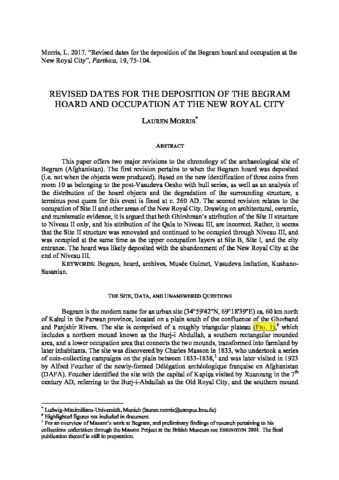Region: Central Asia
Handbook of Ancient Afro-Eurasian Economies Volume 2: Local, Regional, and Imperial Economies
The second volume of the Handbook describes different extractive economies in the world regions that have been outlined in the first volume. A wide range of economic actors – from kings and armies to cities and producers – are discussed within different imperial settings as well as the tools, which enabled and constrained economic outcomes.
Handbook of Ancient Afro-Eurasian Economies Volume 1: Contexts
Khalchayan and historical links to the numismatic, archaeological and iconographical evidence in Central Asia: some suggestions for chronology
Speaker: Razieh TaasobPart of FrACAS series at the Seminar für Alte Geschichte, 2 December, 2019.
Language and Legend in Early Kushan Coinage: Progression and Transformation
This paper discusses the
transformation of the language from Greek to Bactrian which was as a
result of the coinage becoming imperial and a cultural reaction to
changing social and imperial requirements rather than the opposition of
a ruler to the former language and tradition.
Between the State and His Superior: The Anxiety of Being a Low-Ranked Scribe in the Qin and Han Bureaucratic Hierarchy
Speaker: Tsang Wing Mapresented at the 22nd biennial conference of the European Association for Chinese Studies, University of Glasgow, 29 August – 1 September
Between Command and Market: Credit, Labor and Accounting in the Qin Empire (221-207 B.C.E.)
Speaker: Dr. Maxim KorolkovUniversity of Freiburg, Department of Ancient History, 16:30-18:00
Ai Khanum in the face of Eurasian globalization
This paper reassesses the material culture of Ai Khanum, the most
important site of Hellenistic-period Bactria, from a translocal
globalisation approach. While ‘Hellenism’ is a commonly cited
explanation for cultural change in what is often referred to as ‘The Far
East’, it begs the question how particular cultural elements were used
and perceived socially on
Hoards from the Hellenistic to Kushan Period: towards some definitions
Speaker: Lauren MorrisRitual Matters: Archaeology and Religion in Hellenistic Central Asia. Second Meeting of the Hellenistic Central Asia Research Network, Eurasien-Abteilung, DAI, 2-4 November 2017, TOPOI-Haus, Berlin, 13:30-14:00.
Revised dates for the deposition of the Begram hoard and occupation at the New Royal City
- published in Parthica, 19 (2017), 75-104This paper offers two major revisions to the chronology of the archaeological site of Begram (Afghanistan). The first revision pertains to when the Begram hoard was deposited (i.e. not when the objects were produced). Based on the new identification of three coins from room 10 as belonging to the post- Vasudeva Oesho with bull series,
